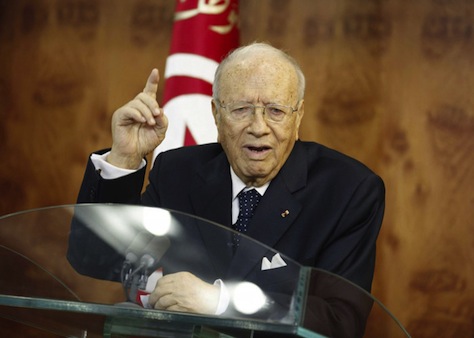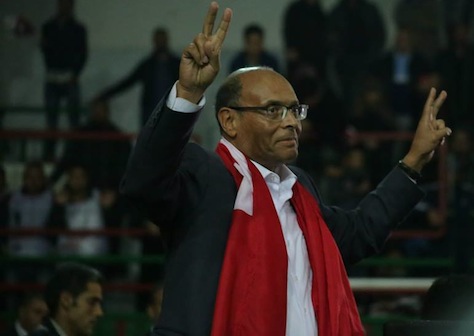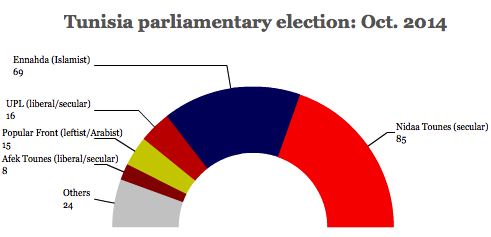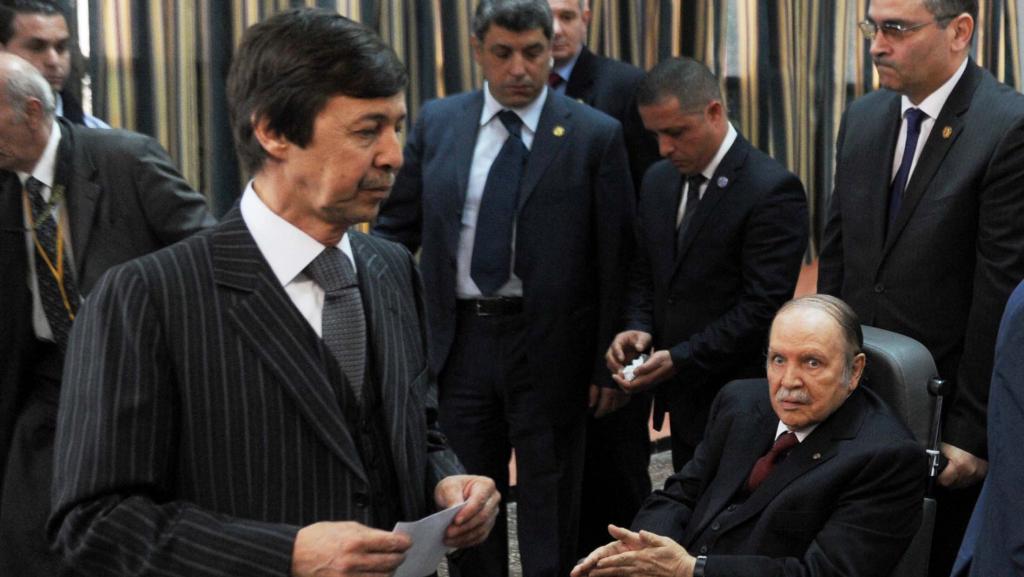
When he was reelected to a dodgy fourth term in April 2014, Algerian voters knew that Abdelaziz Bouteflika, now aged 79, was ailing.![]()
Though he easily dispatched a former prime minister, Ali Benflis, who officially won just over 12% of the vote, most of the opposition simply boycotted the last vote. During the 2011 Arab spring protests and beyond, Algerians have generally been more willing to tolerate Bouteflika’s hold on power because of the stability that his regime brought after a decade of civil war.
Aides claim the president’s faculties are intact, despite a stroke three years ago that left him unable to speak. Nevertheless, it’s clear — and has been clear for some time — that there’s an internal struggle between Bouteflika’s camp and the Algerian military about his ultimate successor.
* * * * *
RELATED: Bouteflika headed for controversial fourth term
* * * * *
Last year, Bouteflika sidelined Algeria’s top internal security official, Mohamed Mediene, a move widely seen as a setback to the military’s involvement in Algerian domestic politics and, accordingly, any succession after Bouteflika’s resignation or death. It was a shock at the time, considering that Mediene, also known as ‘Toufik’ and commonly referred to as the Dieu de l’Algérie, or the ‘God of Algeria,’ had been a fixture within the country’s power elite for more than two decades as the head of the Department of Intelligence and Security (DRS), the Algerian intelligence agency since 1990.
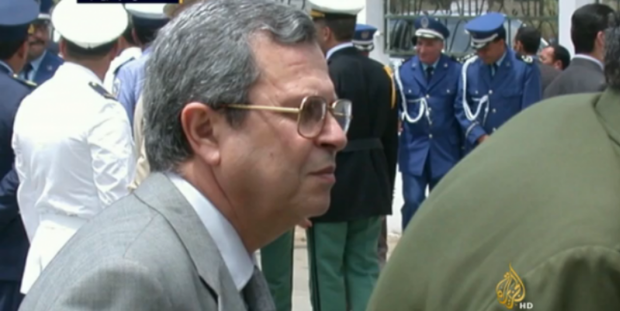
Bouteflika’s next step came earlier this week, with his administration apparently set to reorganize the DRS altogether. If successful, Bouteflika will have dismantled one of the institutional pillars of the military’s power, thereby transferring the country’s intelligence apparatus, which plays a role in domestic as well as international affairs, from the military to the presidential camp.
With so much at stake, the Algerian military may not simply accept such a sweeping adjustment of power, and its leaders may be biding their time to strike in a post-Bouteflika struggle. But it means that Bouteflika’s camp is very serious about controlling the post-Bouteflika transition in as orderly way as possible — and in a way that leaves the presidential regime, and not military or DRS leaders, in charge.
His brother’s keeper
The most likely successor? For now, it might be Saïd Bouteflika, who will argue that he represents the most seamless transition, thereby guaranteeing Algeria’s continued stability.
So what do we know about Saïd? Continue reading Saïd Bouteflika winning internal battle to succeed ailing brother in Algeria
